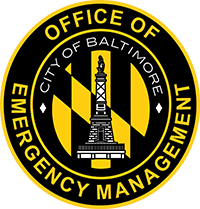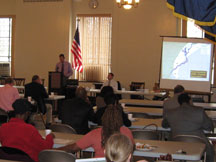

In 1986 Congress passed the Emergency Planning and Community Right-to-Know Act (EPCRA), which was intended to ensure that government and the public had access to the information needed to plan for chemical emergencies. EPCRA requires each state to establish a State Emergency Response Commission (SERC), to create local emergency planning districts (of which Baltimore City is one), and to establish an LEPC in each district. While the Baltimore City LEPC continues to exercise its role with respect to hazardous chemicals, it has expanded its scope to include preparedness for all hazards and all communities.
LEPC general meetings are open to all members of the public and government agencies who are interested in emergency preparedness. Participants include representatives of neighborhood associations, chemical companies, health care organizations, media corporations, public safety agencies, schools; and other non-profit organizations, large and small businesses, and government agencies.
 Organization
OrganizationThe LEPC is chaired by the Baltimore City Office of Emergency Management (OEM). An advisory committee, comprised of representatives from government, businesses, and community members, is appointed by the SERC and provides direction on LEPC activities. Download the LEPC organization chart or by-laws
LEPC general meetings are typically held quarterly. Each LEPC general meeting features speakers who present on topics of interest to the preparedness community. Members have an opportunity to report on programs, recent activities, and upcoming events, and to network with colleagues. We encourage anyone who has an interest in emergency preparedness in Baltimore City to attend!